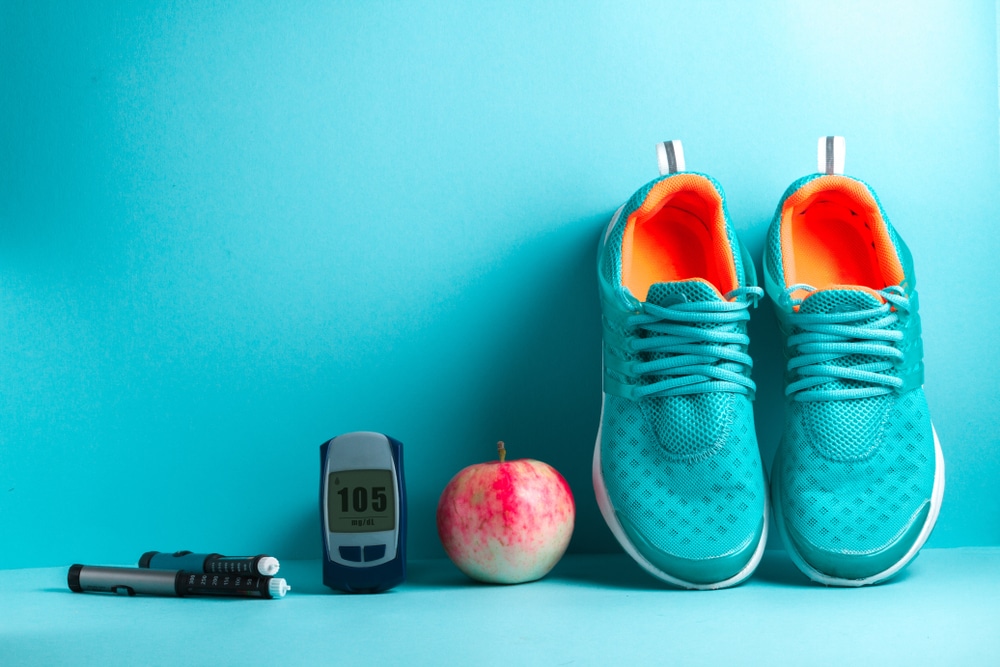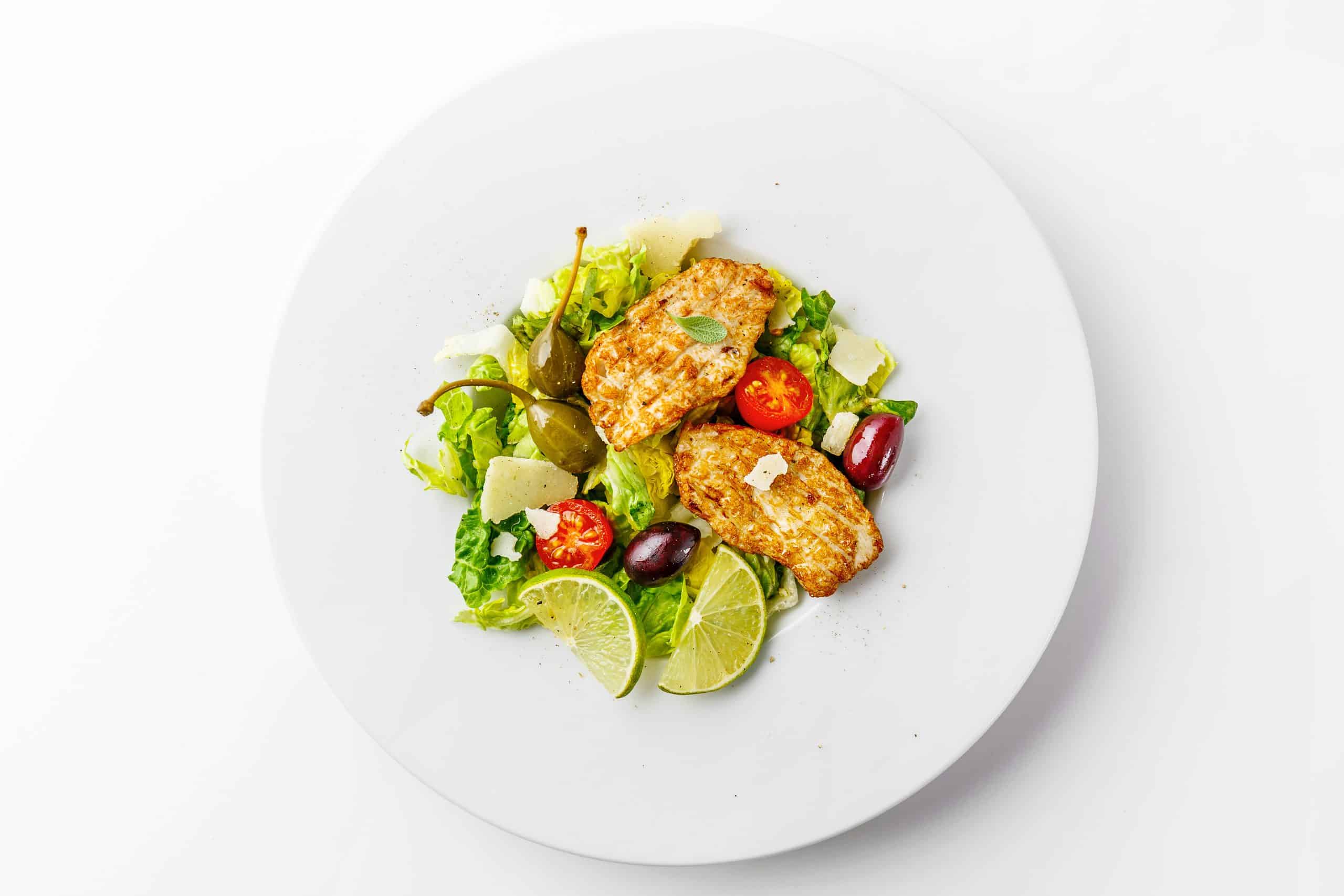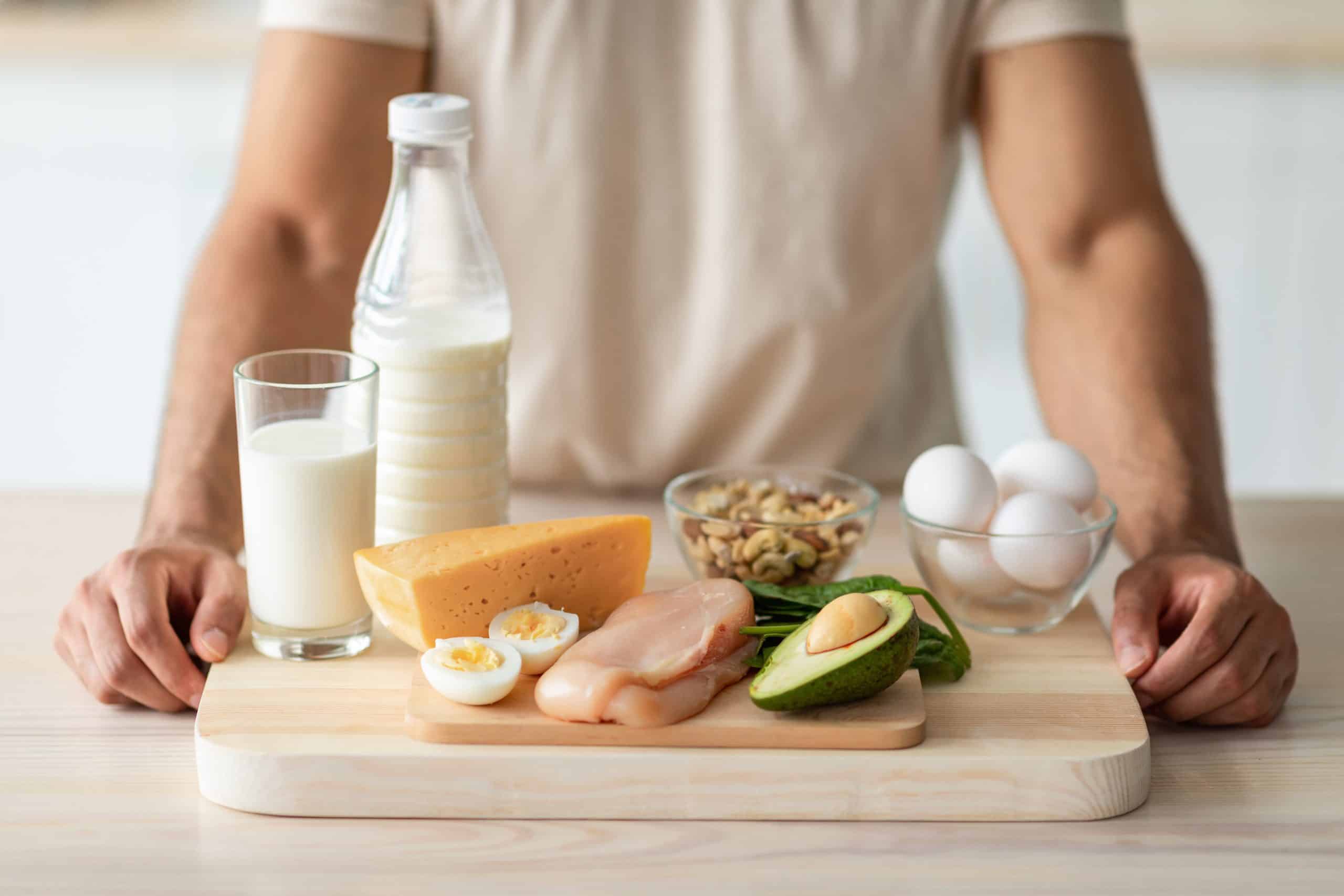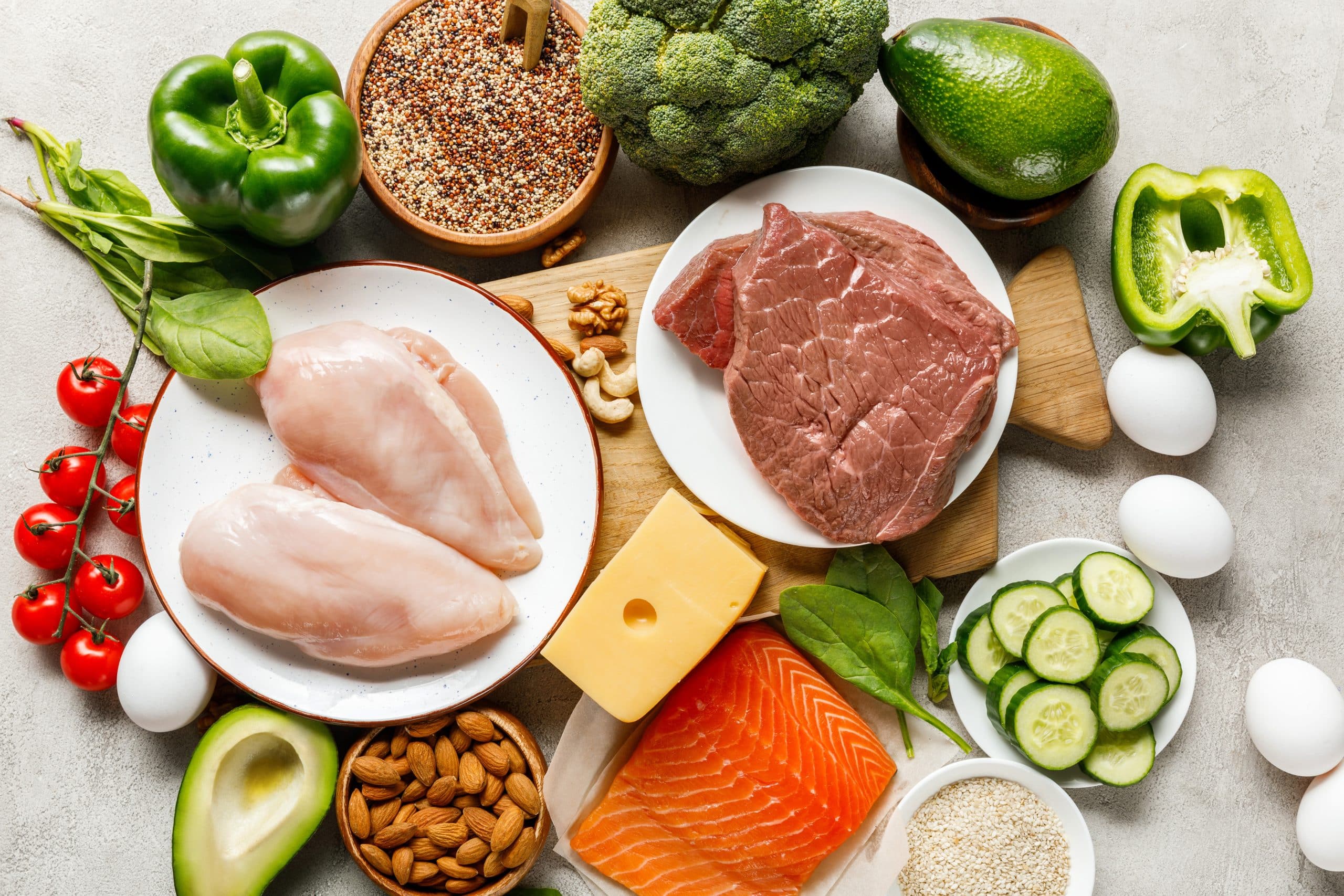Contrary to what people think, maintaining an ideal weight or shedding pounds is both challenging and frustrating. One minute you are losing pounds and fitting in your favorite clothes, and the next minute you are tossing them out because they no longer fit. So what could be causing your weight gain? Believe it or not, insulin, a hormone in your body, could be the culprit.
When we talk of weight gain, we mainly focus on common factors such as eating junk food and the lack of physical activity. That said, we hardly account for the lesser known factors like insulin. Can insulin make you gain weight? Yes, it can. This article will be discussing the link between insulin and weight gain and ways you can avoid insulin-related weight gain. Let us get started!
What Is Insulin And What Is Its Function?
Insulin is a hormone made in your pancreas that mainly helps regulate glucose levels in the blood (4). It is used to treat diabetes by stabilizing your blood sugar or glucose levels.
If you are not producing enough insulin, your doctor may recommend insulin injections to help with diabetes management (3). There are several types of insulin which are classified depending on how fast they start working and the duration of their effects (3). These types include (3):
- Rapid-acting. These start to work in a few minutes, and their effects last for several hours.
- Regular or short-acting. This type of insulin kicks in after thirty minutes or so and lasts three to six hours.
- Intermediate-acting. The effect of this type of insulin is felt between two and four hours of consumption. Its effects can last for close to eighteen hours.
- Long-lasting. As the name suggests, the impact of this insulin type is felt for a longer duration. According to WebMD, the effects can last an entire day (3).
- Pre-mixed. As the name implies, you can tell this type is a combination of two or more types.
Many people with diabetes have a routine of giving themselves insulin shots. They argue that so long as they take their shots, they are good to go. However, experts acknowledge that the place you take this shot highly matters as it reflects the absorption rate (3).
You will most likely absorb insulin most evenly when you inject your belly (3). If not there, the other areas to consider are your thighs, arms, and buttocks (3). Try to inject in the same area but not the exact same spot to avoid scarring (3).
Read More: Weight Loss After 50 Female Guidebook: What You Need After 50 To Keep The Weight At Bay!
How To Determine Which Insulin To Take
As seen from above, there are several types of insulin. Your doctor does not prescribe just any kind but instead chooses based on several factors. Some of these include (2):
- Your body’s response to insulin. Your doctor has to observe how your body absorbs insulin and how long it lasts in your body.
- Lifestyle. The rate at which your body uses insulin is affected by several lifestyle choices. Some of these include your diet, alcohol intake, and physical activity.
- Preferences. Some people do not like injections, so they prefer to consume insulin in another manner, such as a pump.
- Age. Your age also affects insulin sensitivity.
- The number of times you check your blood sugar levels.
- Your goals for managing your blood glucose
Depending on what your doctor finds out, they may prescribe one or more insulin types. Make sure you understand the frequency and if you can take other medicines alongside insulin.
What Is Insulin Resistance?
At times, the cells in your muscles, liver, and fat may not respond well to insulin, meaning you cannot use glucose for energy (2). This is referred to as insulin resistance. To solve this, your pancreas is forced to make more insulin. However, your blood glucose levels will increase over time (2).
Insulin resistance is caused by several factors, which are risk factors. According to WebMD, these causes of insulin resistance include (2):
- Obesity and belly (visceral) fat
- Medical conditions, such as polycystic ovary syndrome (PCOS) and fatty liver disease
- A diet rich in refined carbs
- An inactive (sedentary) lifestyle
- Gestational diabetes
- A family with a history of diabetes
- Medications, such as steroids. HIV drugs and antipsychotics
- Hormonal disorders, such as acromegaly and Cushing’s syndrome
- Smoking
- Sleeping disorders such as sleep apnea
- Age (higher than 45)
You cannot tell if you have insulin resistance judging from how you appear or even how you feel. The most reliable way is by doing a blood test for your blood sugar levels. Noting this, some signs of insulin resistance that doctors ask you to watch out for are (2):
- A blood pressure reading higher than 130/80
- A waistline of over forty inches in men and thirty-five inches in women
- Skin tags
- A fasting glucose level of more than 100mg/dL
- A fasting triglyceride level of more than 150mg/dL
- An HDL cholesterol level less than 40 mg/dL in men and 50 mg/dL in women
- Acanthosis nigricans (patches of dark, velvety skin)
BetterMe app is a foolproof way to go from zero to a weight-loss hero in a safe and sustainable way! What are you waiting for? Start transforming your body now!
Treating Insulin Resistance
Luckily, you can implement various strategies to reverse insulin resistance and decrease type 2 diabetes risk. Some of these strategies include (2):
- Exercising. Make sure you choose an activity matching your fitness level and try to perform it religiously. Aim for at least thirty minutes every day if it is a simple aerobic activity like walking. You can start by performing the exercise five days a week if you are not active (2).
- Eating Healthy Meals. You must eat a balanced diet to control your blood sugar levels, reverse insulin resistance, and prevent type 2 diabetes. Some foods you should consume more of include fruits, vegetables, whole grains, legumes, lean meat, fish, and pulses (2).
- Taking Medications. If it is severe, your doctor may prescribe metformin, a medication that helps in controlling blood sugar levels (2).
Does Insulin Make You Gain Weight?
This is perhaps the million-dollar question that has kept you fixated up to this point. Well, experts acknowledge that one of the most common side effects of taking insulin for diabetes management is weight gain. According to Mayo Clinic, when you consume insulin, glucose that previously couldn’t enter your cells does so and its levels in your blood drop noticeably (1).
Now that glucose can be used for energy in your cells when previously it couldn’t, because it was stuck in your blood. If you consume more calories than your body requires and remain inactive, your cells will have more glucose than needed (1).
Since your body is not using this glucose for immediate energy, it accumulates as fat, especially in your abdomen (1). Medical News Today also acknowledges that you can add pounds as a side effect of insulin therapy. Although this hormone regulates your glucose levels, you must remember that it also promotes fat storage (4).
How To Avoid Weight Gain On Insulin
As we have determined above, individuals who take insulin to manage their glucose levels may add some pounds. However, the extra pounds do not sit well with some people. This does not mean you should stop taking insulin or skip some doses. That is not the right way to go about it.
Instead, you ought to first talk to your doctor about your concerns about the extra weight gain. Of course, they will most likely not ask you to stop with the medication as elevated blood glucose has been linked to long-term complications. They will instead recommend other effective ways of avoiding insulin-related weight gain like (4):
-
Regular Exercise
We all know how important exercise is in our lives. Besides helping you keep fit, exercising regularly also helps you burn calories and regulate blood glucose levels. Stabilizing these glucose levels and torching calories helps promote fat loss (4).
However, you need to talk to your doctor about the type of exercise to perform. Mayo Clinic states that exercising helps your body use insulin more efficiently if you perform enough of it (1).
Regular exercise will not only help keep the weight at bay, it may reduce your insulin requirements over time (1). Never change your insulin dose on your own, but talk to your doctor about the role exercise plays in the management of your diabetes and follow their recommendations.
Read More: Weight Loss Plans For Men: 10 Healthy, Sustainable Diets To Choose From
-
Taking The Correct Dosage
Some people may add some pounds if they take more insulin. Remember that although you might lose a pound or two, stopping the medication comes with its risks.
Without enough insulin, you run the risk of experiencing more severe diabetes complications (1). The best way to take insulin and lose weight is by taking the correct dosage and implementing other techniques like exercising. Keep an open dialogue with your doctor and don’t change doses or stop your medications without speaking to them.
-
Counting Calories
There are many causes of weight gain, and for sure, the main one is consuming more calories than your body is burning. This may result in rapid weight gain, making you settle for drastic and dangerous weight loss measures.
One of such measures is skipping meals. Skipping meals in no way helps your health, especially if you have diabetes. The behavior only lowers your blood sugar levels, which may lead to hypoglycemia (1).
Instead of skipping meals, experts suggest you consume healthy, balanced meals but track your calories. One way you can track the calories you consume is by practicing portion control. Portion control is when you watch your food ratios and sizes.
Similarly, you can cut on the calories you consume by planning for your meals. According to the Mayo Clinic, you are most likely to overeat and even eat unhealthy meals if you do not plan for them (1).
There are multiple meal planning strategies and meal plan ideas online. Before you work with any of them, make sure you talk to your doctor and dietitian. They must recommend plans that help you meet both your nutritional and calorie requirements. Again, remember that with diabetes, balance, quality, and portion control are key.
The Bottom Line
Does insulin make you gain weight? Yes, it can. However, you can avoid insulin-related weight gain in several ways. These entail counting your calories, exercising, and eating healthy meals. Make sure you talk to your doctor if you suspect insulin is behind your rapid weight gain.
DISCLAIMER:
This article is intended for general informational purposes only and does not address individual circumstances. It is not a substitute for professional advice or help and should not be relied on for decision-making. Always consult a doctor in the area of your particular needs and in circumstances influencing any medical-related decisions. Otherwise, any action you take upon the information presented in this article is strictly at your own risk and responsibility!
SOURCES:
- Insulin and weight gain: Keep the pounds off (2020, mayoclinic.org)
- Insulin Resistance (2021, webmd.com)
- Types of insulin for Diabetes Management (2020, webmd.com)
- What to know about insulin and weight gain (2019, medicalnewstoday.com)

















